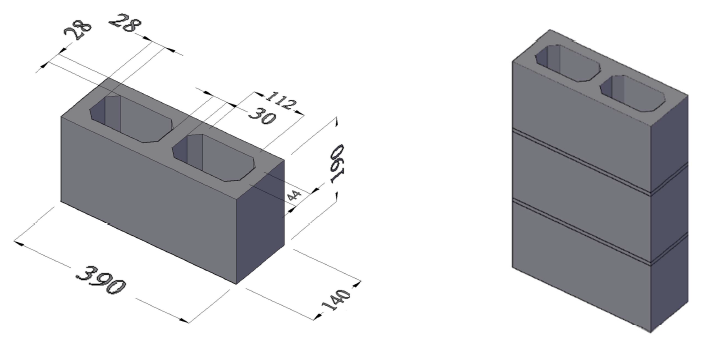Wanyan Liu and Yong Li
Wanyan Liu, M.Sc. student, Department of Civil and Environmental Engineering, 6-244 Donadeo Innovation Centre for Engineering, 9211-116 Street NW, University of Alberta, Edmonton, AB, Canada, wanyan@ualberta.ca
Yong Li, Assistant Professor, Department of Civil and Environmental Engineering, 6-259 Donadeo Innovation Centre for Engineering, 9211-116 Street NW, University of Alberta, Edmonton, AB, Canada, yong9@ualberta.ca
ABSTRACT
The compressive strength of masonry is a critical material parameter in the design and analysis of masonry structures, and it is commonly determined based on physical testing (e.g., prism testing) in the laboratory or semi-empirical analytical models (e.g., unit strength method). Being a less expensive and still accurate approach, finite element (FE) modeling is attractive for predicting the masonry compressive strength. This paper presents the development and application of a threedimensional (3D) detailed FE model for masonry prisms using commercial software ABAQUS. In this model, concrete damage plasticity (CDP), together with the uniaxial compressive behavior described by the modified Kent-Park model, was adopted for both concrete units and mortar layers. In addition, the tensile behavior was characterized using the concept of fracture energy. The developed FE models were validated using the experimental tests of concrete masonry prisms. Following the validation, a series of parametric studies was conducted to learn how material properties or testing configurations can affect the FE-based masonry strength prediction.
Numerical prism testing was then carried out to study the prediction ability of the proposed FE model compared to the current masonry design codes. Results indicate that the compressive behavior of masonry prisms is more significantly affected by concrete unit compressive strength and the mortar thickness, which shed lights on the importance of construction quality.
KEYWORDS: finite element model, hollow masonry prism, detailed micro-modeling approach, masonry compressive strength



